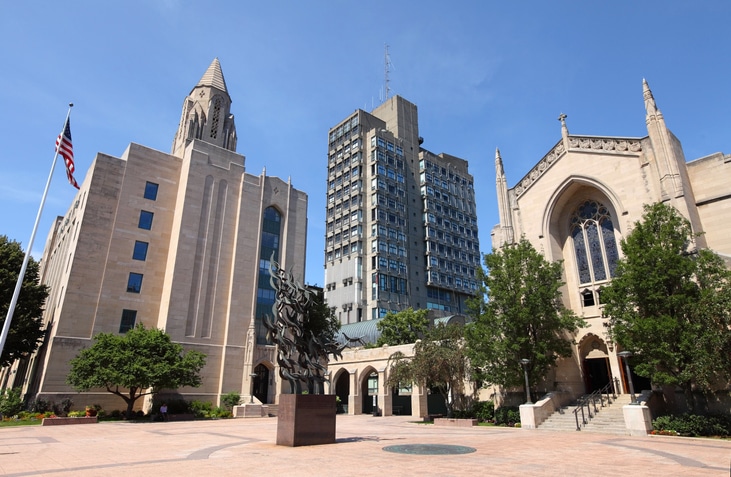On April 27, Boston University’s Susilo Institute for Ethics in the Global Economy hosted “Whistleblowers: Capitalism’s Protectors,” a virtual webinar.
Panelists included leading whistleblower attorney and author Stephen M. Kohn, former Department of Justice False Claims Act attorney Erica Blachman Hitchings, and Tyler Schultz, the integral whistleblower in the downfall of fraudulent health tech company Theranos.
This esteemed group of whistleblower advocates discussed available whistleblower laws and programs, how to best protect yourself, and the risks of whistleblowing through the lens of Schultz’ case.
David Epstein, Executive Director of the Susilo Institute, moderated the panel.
“One of the most effective guardrails in our capitalistic business environment turns out not to be regulations, but rather often overlooked individuals each with an enviable moral compass,” Epstein said. “It’s not easy standing up against harmful business practices.”
Kohn, founding partner of whistleblower protection firm Kohn, Kohn & Colapinto LLP, discussed the hardships associated with blowing the whistle and why he takes his role as a lawyer and advocate so seriously.
“The whistleblower is still a unique feature in the workplace,” Kohn said. “That’s why it’s so important to take steps to protect them and give them that anonymity, the protective shield, because most people won’t. Those that get pushback learn their lesson, and it can be extreme.”
While Kohn believes there is an ideal way to go about whistleblowing, which includes the use of anonymous and confidential status, he acknowledges that that is rarely the instinct whistleblowers have.
Kohn noted that Schultz is a perfect example of this. Back in 2015, Schultz blew the whistle on faulty technology and exaggerated test results, among other practices that were actively harming users, and shareholders, day in and day out. But when Schultz and his coworkers spoke up, he faced immense pushback from Theranos-supporters, including his own grandfather who was on the board of directors.
“The stronger your evidence, the bigger the violation, the more there is risk of extreme retaliation,” Kohn said. “Therefore, Congress has now created safe, anonymous and confidential reporting channels. There are ways to protect yourself, but what happened to Tyler is, in my experience, what 90+ percent of people do. Often you can put Humpty Dumpty back together again, sometimes you can’t.”
Just last year, Elizabeth Holmes, founder and face of Theranos, was sentenced to over 11 years in prison for defrauding investors.
“You may only have one small subset of information, and the company is probably going to gaslight you into thinking you’re crazy, but if something feels wrong, it probably is,” Schultz said. “You should really trust your gut and listen to it and start talking to a lawyer.”
Despite a long and costly legal battle, Schultz said he would do it again.
“Time heals all wounds, and I’m starting to see more and more the positive impact that my story has had moving forward,” Schultz said. “So yeah, I’d say that absolutely I would do it again. I would do it completely differently, but I would do it again.”
Hitchings, who is now an attorney at the Whistleblower Law Collaborative, spent the first 9 years of her career as a Department of Justice attorney investigating, litigating, and settling a wide range of False Claims Act cases. From healthcare fraud to contracting fraud, Hitchings worked to recover hundreds of millions of dollars for the United States.
“The vast majority of our clients, both the potential clients and then ultimately people who go through with coming forward, are driven by a moral compass, [and] a fear of patient harm,” Hitchings said. “The reasons are real, and there are things that keep people up at night, and they come to us to help them solve that problem.”
Attendees of the event were given an exclusive access code for a discounted pre-order of Kohn’s latest book, “Rules for Whistleblowers: A Handbook for Doing What’s Right”, out June 1.
Watch a Recording of “Whistleblowers: Capitalism’s Protectors.”
